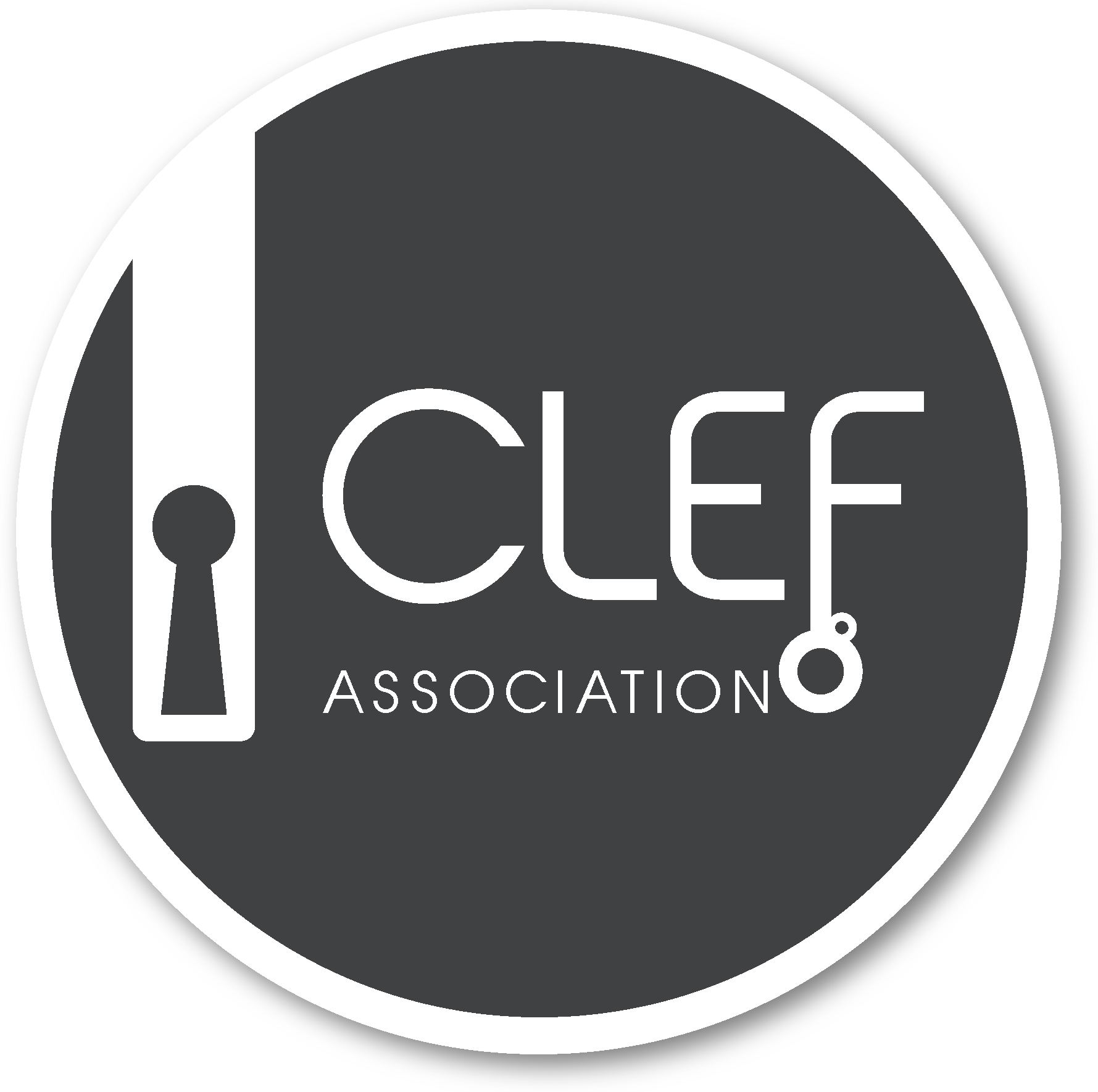

|
Presentation Instructions
Full papers and Best Of the Labs papers presentation
Each paper is allocated 30 minutes for lecture, including time for questions and session-chair introduction.
Full papers with short presentation
For each paper, a short presentation (10 minutes with no discussion afterwards) as well as a poster are needed.
Discussion on papers will take place during the poster session directly following the session.
For your poster, a board will be provided; the board is oriented in a “portrait” format and poster should be in A0 format (84,1cm wide and 118cm tall - approximately 33in wide and 46.5in tall).
Short papers presentation : posters
For your poster, a board will be provided; the board is oriented in a “portrait” format and poster should be in A0 format (84,1cm wide and 118cm tall - approximately 33in wide and 46.5in tall).
Labs posters
For your poster, a board will be provided; the board is oriented in a “portrait” format and poster should be in A0 format (84,1cm wide and 118cm tall - approximately 33in wide and 46.5in tall).
CLEF 2015 Accepted Papers
Best of the labs papers
- Search-based Image Annotation: Extracting Semantics from Similar Images (long presentation)
Petra Budikova, Michal Batko, Jan Botorek and Pavel Zezula.
- NLP-based classifiers to generalize experts assessments in E-Reputation monitoring (long presentation)
Jean-Valère Cossu, Emmanuel Ferreira, Killian Janod, Julien Gaillard and Marc El-Bèze.
- A Method for Short Message Contextualization: Experiments at CLEF/INEX (long presentation)
Liana Ermakova.
- Towards Automatic Large-Scale Identification of Birds in Audio Recordings (long presentation)
Mario Lasseck.
- Information Extraction From Clinical Documents: Towards Disease/Disorder Template Filling (short presentation)
Veera Raghavendra Chikka, Nestor Mariyasagayam, Yoshiki Niwa and Kamalakar Karlapalem.
- Adaptive Algorithm for Plagiarism Detection(long presentation)
Miguel A. Sánchez-Pérez, Alexander Gelbukh and Grigori Sidorov.
- Optimizing and Evaluating Stream-based News Recommendation Algorithms (long presentation)
Sebastian Werner and Andreas Lommatzsch.
- Answering Natural Language Questions via Phrasal Semantic Parsing (long presentation)
Kun Xu, Yansong Feng and Dongyan Zhao.
Full papers (long presentation)
- Experimental Study on Semi-Structured Peer-to-Peer Information Retrieval Network
Rami Alkhawaldeh and Joemon Jose.
- Evaluating Stacked Marginalised Denoising Autoencoders within Domain Adaptation Methods
Boris Chidlovskii, Gabriela Csurka and Stephane Clincahnt.
- Language Variety Identification using Distributed Representations of Words and Documents
Marc Franco-Salvador, Francisco Rangel, Paolo Rosso, Mariona Taulé and M. Antònia Martí.
- Evaluating User Image Tagging Credibility
Alexandru Lucian Gînscă, Adrian Popescu, Mihai Lupu, Adrian Iftene and Ioannis Kanellos.
- Tweet Expansion Method for Filtering Task in Twitter
Payam Karisani, Farhad Oroumchian and Maseud Rahgozar.
- Real-Time Entity-Based Event Detection for Twitter
Andrew J Mcminn and Joemon Jose.
- A Comparative Study of Click Models for Web Search
Luka Stout, Finde Xumara, Ilya Markov, Artem Grotov, Aleksandr Chuklin and Maarten de Rijke.
- Evaluation of Pseudo Relevance Feedback Techniques for Cross Vertical Aggregated Search
Hermann Ziak and Roman Kern.
Full papers (short presentation)
- Analysing the Role of Representation Choices in Portuguese Relation Extraction
Sandra Collovini, Marcelo de Bairros Pereira Filho and Renata Vieira.
- An Investigation of Cross-Language Information Retrieval for User-Generated Internet Video
Ahmad Khwileh, Debasis Ganguly and Gareth Jones.
- Benchmark of Rule-based Classifiers in the News Recommendation Task
Jaroslav Kuchař and Tomas Kliegr.
- Enhancing Medical Information Retrieval by exploiting a Content-Based Recommender Method
Wei Li and Gareth Jones.
- Summarizing Citation Contexts of Scientific Publications
Sandra Mitrović and Henning Müller.
- A Multiple-stage Approach to Re-ranking Medical Documents
Heung-Seon Oh, Yuchul Jung and Kwang-Young Kim.
- Exploring Behavioral Dimensions in Session Effectiveness through Simulation
Teemu Pääkkönen, Heikki Keskustalo, Jaana Kekäläinen, Leif Azzopardi, David Maxwell, Feza Baskaya and Kalervo Järvelin.
Short papers
- Meta Text Aligner: Text Alignment Based on Predicted Plagiarism Relation
Samira Abnar, Mostafa Dehghani and Azadeh Shakery.
- Automatic Indexing of Journal Abstracts with Latent Semantic Analysis
Joel Adams and Steven Bedrick.
- Shadow Answers as an Intermediary in Email Answer Retrieval
Alyaa Alfalahi, Gunnar Eriksson and Eriks Sneiders.
- Are Topically Diverse Documents Also Interesting?
Hosein Azarbonyad, Ferron Saan, Mostafa Dehghani, Maarten Marx and Jaap Kamps.
- Modeling of the Question Answering Task in the YodaQA System
Petr Baudis and Jan Sedivy.
- Unfair Means: Use Cases beyond Plagiarism
Paul Clough, Peter Willett and Jesse Lim.
- INSTANCE-BASED LEARNING FOR TWEET MONITORING AND CATEGORIZATION
Julien Gobeill, Arnaud Gaudinat and Patrick Ruch.
- Are Test Collections ”Real”? - Mirroring Real-World Complexity in IR Test Collections
Melanie Imhof and Martin Braschler.
- Evaluation of Manual Query Expansion Rules on a Domain Specific FAQ Collection
Mladen Karan and Jan Snajder.
- Evaluating Learning Language Representations
Jussi Karlgren, Jimmy Callin, Kevyn Collins-Thompson, Amaru Cuba Gyllensten, Ariel Ekgren, David Jürgens, Anna Korhonen, Fredrik Olsson, Magnus Sahlgren and Hinrich Schütze.
- Automatic Segmentation and Deep Learning of Bird Sounds
Hendrik Vincent Koops, Jan van Balen and Frans Wiering.
- The Impact of Noise in Web Genre Identification
Dimitrios Pritsos and Efstathios Stamatatos.
- On the Multilingual and Genre Robustness of EmoGraphs for Author Profiling in Social Media
Francisco Manuel Rangel Pardo and Paolo Rosso.
- Is Concept Mapping useful for Biomedical Information Retrieval?
Wei Shen and Jian-Yun Nie.
- Using Health Statistics to Improve Medical and Health Search
Tawan Sierek and Allan Hanbury.
- Determining Window Size from Plagiarism Corpus for Stylometric Features
Šimon Suchomel and Michal Brandejs.
- Effect of log-based Query Term Expansion on Retrieval Effectiveness in Patent Searching
Wolfgang Tannebaum, Andreas Rauber and Parvaz Mahdabi.
- Integrating Mixed-Methods for Evaluating Information Access Systems
Simon Wakeling and Paul Clough.
- Teaching the IR process using real experiments supported by game mechanics
Thomas Wilhelm-Stein and Maximilian Eibl.
- Tweet Contextualization Using Association Rules Mining and DBpedia
Meriem Amina Zingla, Chiraz Latiri and Yahya Slimani.
|
|